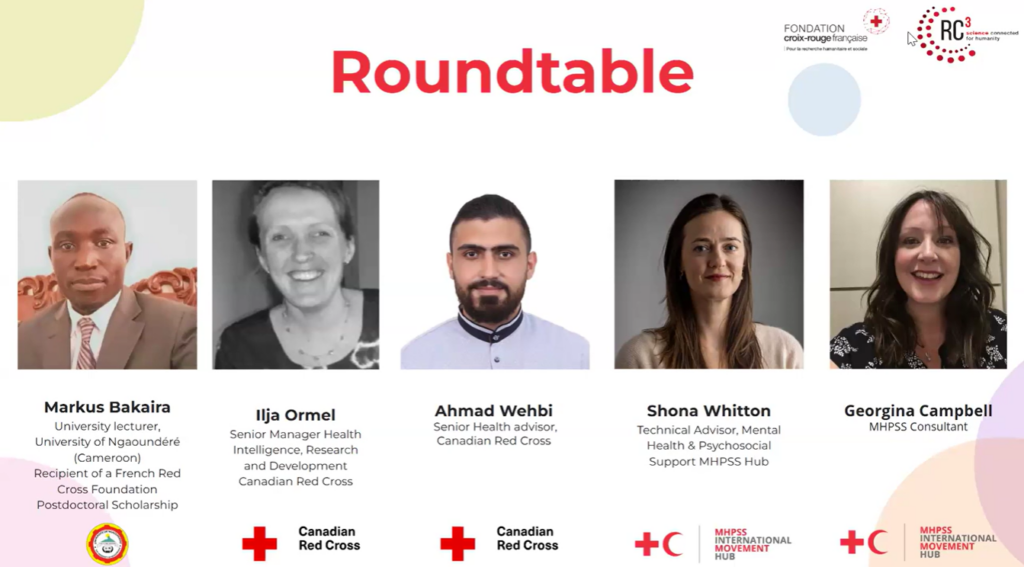On May 15, 2025, the French Red Cross Foundation took part in RC3’s “Research All-Nighter,” hosting an online roundtable on a topic that’s more relevant than ever: the health impacts of climate change and how research can help mitigate them.
The RC3 (Red Cross and Red Crescent Research Consortium) “Research All-Nighter” is a 24-hour global online event dedicated to research within the Red Cross and Red Crescent Movement. The second edition focused on global humanitarian challenges, bringing together over 900 registered participants and offering 25 sessions in four languages.
| How research can help anticipate risks and adapt responses
Titled “Bridging Health Gaps: Leveraging Research to Address the Health Impacts of Climate Change”, the session organized by the Foundation brought together researchers and practitioners from different countries to share their experiences and research—much of it conducted within the International Red Cross and Red Crescent Movement.
Participants included:
- Markus Bakaira, Senior Lecturer at the University of Ngaoundéré (Cameroon), who presented his work on community resilience to flood- and drought-related health risks in the Logone Plain (Cameroon/Chad)
- lja Ormel, Senior Manager of Health Intelligence, Research and Development at the Canadian Red Cross, and Ahmad Wehbi, Senior Health Advisor at the same organization
- Shona Whitton, Technical Advisor on Mental Health and Psychosocial Support (MHPSS) at the RCRC MHPSS Centre, and Georgina Campbell, MHPSS Consultant.
Moderated by Vincent Léger, Research Officer at the French Red Cross Foundation, the discussion opened with a stark reminder: climate change isn’t just an environmental crisis, it’s a global health crisis. It threatens both physical and mental health, exacerbates outbreaks, weakens healthcare systems, and disproportionately affects the most vulnerable communities.
The research presented during the roundtable illustrated how scientific data can help humanitarian actors take more effective action by anticipating risks, adapting health systems, and supporting the most exposed populations.

| Elevating local knowledge rooted in real-world experience
Throughout the conversation, one message came through loud and clear: research is a key driver of action. It not only helps us understand the complex links between climate and health but also informs responses that are tailored to local contexts.
The session also highlighted the importance of recognizing and valuing indigenous knowledge and community-based practices. Often overlooked in adaptation policies, these local insights offer practical, lasting, and culturally meaningful solutions.





